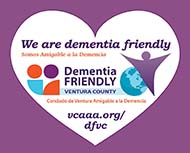
Did you know that February is American Heart Month? Since 1964, American Heart Month has been helping raise awareness and encourages people to take a proactive approach to their heart health. To this day, heart disease is still the largest health threat to Americans. According to the CDC, “In the United States, someone has a heart attack every 40 seconds.”
If you find yourself facing heart disease, it’s important to have a care plan and support system in place. Home health can help you actively manage your heart health, improve your quality of life, and prevent hospital readmissions. Keep reading to learn how skilled caregivers can help you stay ahead of your condition.
Adopt a Healthy Lifestyle
To help prevent complications, it’s essential to choose healthy food options, including fresh fruits and vegetables, foods high in fiber and low in fats and cholesterol, and limit the number of processed foods in your diet. Adopting a healthy lifestyle can be challenging; but, Home Health Aides can help prepare meals to meet dietary requirements set by your doctor or nutritionist to promote heart health.
Stay Active
Your heart is a muscle, and like any other muscle, it gets stronger with exercise. Physical Therapists can help you safely strengthen muscles and improve endurance. Staying active not only improves heart strength, but it also helps you to maintain a healthy weight and lower your blood pressure, blood cholesterol, and blood sugar levels, reducing your risk of complications.
Modify your Routines
Occupational Therapists can help develop a plan to help you complete activities of daily living (ADL’s) easier including modifying tasks to reduce strain, reorganize your daily routine to conserve energy, and rearrange your homes layout making it safer and easier to navigate. By setting realistic daily goals and modifying your routine, you will be able to safely maintain your independence.
Medication Management
Managing heart disease often means taking medications to treat risk factors like high cholesterol, high blood pressure, diabetes, and even anxiety or depression. It’s important to take your medicines as prescribed by your doctor to keep these risk factors under control. Knowledgeable caregivers can help with medication management to make sure you’re taking your medications on schedule. They can also help answer any questions you may have about your medications.
Ask for Help
If you’re feeling overwhelmed managing your condition, ask for help. With home care, you are not alone. Compassionate caregivers can provide you with the knowledge and support you need to be able to take care of your health and make positive changes to help keep you feeling your best.
Let Assisted Help You
Home health and in-home caregivers can help keep you engaged with your health and treatment plans to reduce hospital readmissions and enjoy a higher quality of life. Assisted is here to help, to learn how our team of skilled healthcare professionals can help you or a loved one, visit www.AssistedCares.com or call us today at 805-949-6555.







